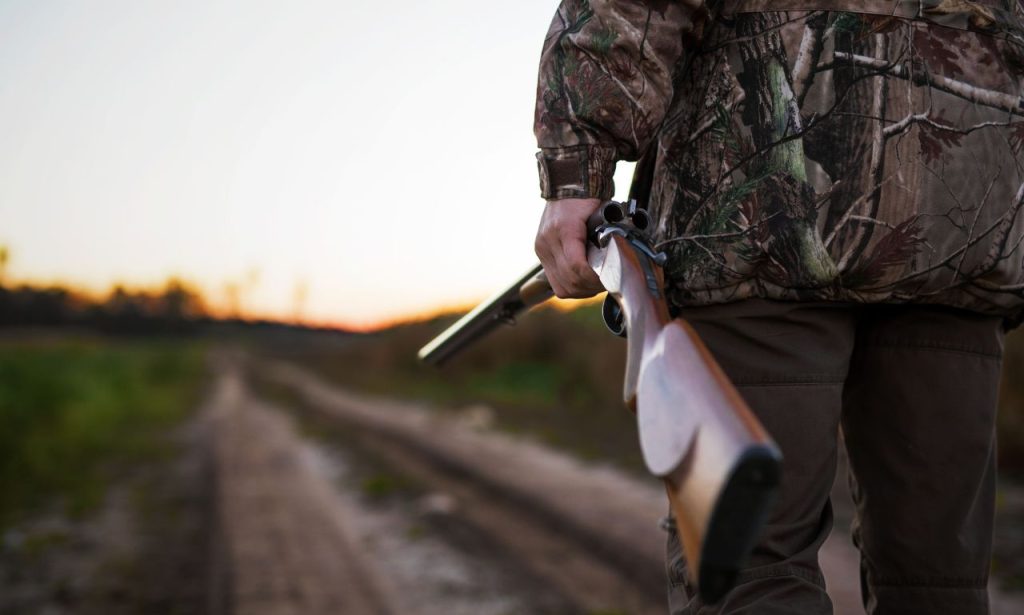Becoming a bounty hunter in Washington State is an adventurous and challenging career path that requires dedication, training, and a thorough understanding of state laws. If you’re passionate about law enforcement and helping uphold justice, this guide will walk you through the essential steps to embark on this unique profession. From understanding legal requirements to networking with industry professionals, you’ll gain comprehensive insights into how to become a bounty hunter in Washington State.
Research State Laws and Regulations Regarding Bounty Hunting
Before diving into the world of bounty hunting, it’s imperative to familiarize yourself with Washington State’s specific laws and regulations governing this profession. Washington does not have a statutory license requirement for bounty hunters, but understanding the legal landscape is crucial to operate within the bounds of the law.
Key Considerations:
- No Licensing Requirement: Unlike some states, Washington does not mandate a specific license for bounty hunters.
- Jurisdictional Limits: Bounty hunters must operate within the jurisdiction of Washington State and respect the boundaries of local and federal laws.
- Legal Authority: Understand the extent of your authority, including the right to detain individuals and work alongside law enforcement agencies.
Important Resources:
By thoroughly researching and understanding these regulations, you’ll ensure that your actions as a bounty hunter are both effective and legally compliant.
Gain Relevant Experience in Law Enforcement or Security

Experience in related fields can significantly enhance your qualifications and effectiveness as a bounty hunter. Roles in law enforcement, security, or military service provide valuable skills and insights that are directly applicable to bounty hunting.
Benefits of Relevant Experience:
- Understanding of Legal Procedures: Familiarity with arrest protocols and legal rights.
- Investigative Skills: Ability to track and locate individuals using advanced techniques.
- Physical and Mental Preparedness: Training in self-defense, situational awareness, and crisis management.
- Networking Opportunities: Connections with professionals in law enforcement and related fields.
Consider pursuing roles such as a police officer, security guard, or private investigator to build a strong foundation for your bounty hunting career.
Obtain a Concealed Pistol License in Washington State
A concealed pistol license is a valuable credential for bounty hunters, enabling you to carry a firearm legally. In Washington State, obtaining this license involves a series of steps designed to ensure that firearm carriers are responsible and law-abiding.
Steps to Obtain a Concealed Pistol License:
- Complete a Firearms Safety Course: Enroll in a state-approved training program to learn firearm handling and safety protocols.
- Gather Required Documentation: Prepare identification, proof of residency, and other necessary documents.
- Submit an Application: Complete the application form available through the Washington State Department of Licensing.
- Undergo a Background Check: Authorities will review your criminal history and suitability for carrying a concealed weapon.
- Attend an Interview: In some cases, an in-person interview may be required as part of the licensing process.
Helpful Resources:
Having a concealed pistol license not only equips you with the necessary tools for bounty hunting but also demonstrates your commitment to maintaining safety and compliance with state laws.
Complete Required Education or Training Programs
While Washington State does not mandate specific educational qualifications for bounty hunters, completing relevant education or training programs can enhance your skills and credibility in the field.
Recommended Education and Training:
- Criminal Justice Degree: Provides a comprehensive understanding of the legal system, criminology, and investigative techniques.
- Bounty Hunter Training Programs: Specialized courses focusing on apprehension techniques, legal considerations, and ethical practices.
- First Aid and CPR Certification: Essential for handling emergencies during apprehensions.
Notable Training Institutions:
Investing in education and training not only equips you with the necessary knowledge but also signals to clients and employers that you are dedicated to excelling in the bounty hunting profession.
Pass the Necessary Examination for Bounty Hunting
Although Washington State does not require a specific examination for bounty hunters, having certifications from recognized institutions can significantly bolster your qualifications. These certifications often involve testing your knowledge of legal procedures, investigative techniques, and safety protocols.
Types of Examinations:
- State-Recognized Certification Exams: Assess knowledge of Washington State laws and regulations pertaining to bail enforcement.
- Professional Organization Certifications: Offered by bodies such as the Bureau of Bail Enforcement or Poirot Association.
Passing these examinations demonstrates your competency and readiness to handle the responsibilities associated with bounty hunting, making you a more attractive candidate to potential employers or clients.
Submit Your Bounty Hunter License Application

Even though Washington State does not have a specific bounty hunter license, formalizing your status through official channels can enhance your legitimacy and operational capacity.
Application Steps:
- Compile Necessary Documentation: Gather your concealed pistol license, training certificates, and any relevant experience records.
- Complete Application Forms: If applicable, fill out any forms required by local jurisdictions or professional organizations.
- Pay Applicable Fees: Submit the required fees associated with your application or certifications.
- Submit Application: Send your completed application to the appropriate department or organization.
Essential Tips:
- Double-Check Requirements: Ensure all required documents and forms are accurately completed to avoid delays.
- Keep Records Organized: Maintain a file of all submitted documents and correspondences for future reference.
Formalizing your application process ensures that you are recognized as a professional within the bounty hunting community, facilitating smoother operations and collaborations.
Conclusion
Embarking on the journey of how to become a bounty hunter in Washington State requires a blend of legal knowledge, practical experience, and dedicated training. By thoroughly researching state laws, gaining relevant experience, obtaining necessary licenses, and continuously enhancing your skills, you position yourself for a successful and fulfilling career in bounty hunting. Networking with industry professionals, staying informed about career prospects, and understanding the financial aspects further solidify your path toward becoming an effective and respected bounty hunter. Embrace the challenges and opportunities that come with this unique profession, and take proactive steps to achieve your career aspirations in Washington State’s dynamic law enforcement landscape.
ALSO READ:
FAQs
As a bounty hunter in Washington State, your primary responsibilities include locating and apprehending individuals who have skipped bail, ensuring their return to court, and working closely with law enforcement agencies throughout the process.
While not mandatory, having a background in law enforcement, security, or related fields significantly enhances your skills and effectiveness as a bounty hunter, providing valuable insights into legal procedures and investigative techniques.
Handling confrontational situations requires excellent negotiation skills, situational awareness, and training in self-defense. Continuous training and experience help you manage such encounters safely and effectively.
Yes, in Washington State, you can operate independently as a bounty hunter. However, building a network and possibly affiliating with bail bonds companies can provide additional support and resources.
Professional liability insurance and general liability insurance are essential for bounty hunters to protect against potential legal claims, accidents, or damages that may occur during apprehension activities.




